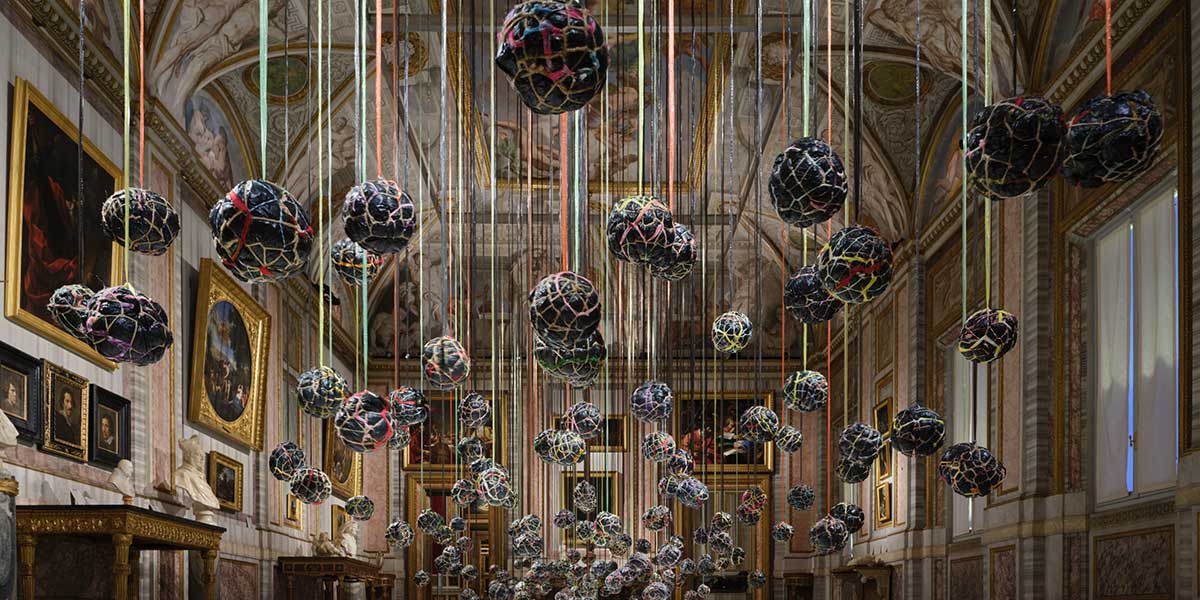The historic Italian fashion house maintains a sustained commitment to restoring, patronizing, and promoting contemporary art in Italy and abroad.
FENDI's relationship with the cultural world is not new. Since its founding in Rome in 1925, the Italian fashion house has consistently supported the preservation of heritage, contemporary art, and the cultural life of its hometown.
One of the best-known milestones was the restoration of the Trevi Fountain in 2013, which marked the beginning of the Fendi for Fountains project. This project focuses on preserving other historic fountains, such as the Four Fountains, the Gianicolo Fountain, the Mosè Fountain, the Pincio Nymphaeum, and the Peschiera Aqueduct.
In 2015, FENDI moved its headquarters to the iconic Palazzo della Civiltà Italiana and opened its first floor to the public with temporary exhibitions on design, urban history, and visual culture. In 2017, that same space hosted the Matrice exhibition by artist Giuseppe Penone, featuring works that had never been seen in Italy before. FENDI's collaboration with Penone continued with the permanent installation of Foglie di Pietra, a sculpture placed in Largo Goldoni in front of the Palazzo FENDI.
The company has also played an active role in professional restoration training by supporting the Higher Institute for Conservation and Restoration (ISCR) and its School of Advanced Training.
On an international level, FENDI sponsored the Italian Pavilion at the 2017 Venice Biennale to promote young Italian artists. Since 2017, it has collaborated with the Galleria Borghese, funding exhibitions dedicated to figures such as Gian Lorenzo Bernini, Pablo Picasso, and Luigi Valadier. This collaboration continues to this day, with recent shows featuring the work of Giuseppe Penone, Louise Bourgeois, and Wangechi Mutu.
FENDI has promoted interdisciplinary projects, such as FENDI Renaissance — Anima Mundi, a series of digital concerts launched during the pandemic. The company has also supported interventions, such as Lux Formae, an architectural mapping piece on the façade of its headquarters by Hungarian artist László Bordos.
In 2025, FENDI completed the restoration of the Grotta di Diana in the Villa d'Este Gardens, a UNESCO World Heritage Site. This project highlights the company's dedication to preserving significant monuments in and around Rome.
As part of its ongoing commitment to art and culture, FENDI is supporting the exhibition "Wangechi Mutu: Black Soil Poems," opening in June 2025 at the Galleria Borghese in Rome. Curated by museum director Francesca Cappelletti and curator Carla Subrizi, the exhibition represents an unprecedented dialogue between contemporary African art and one of the classic temples of European art.

